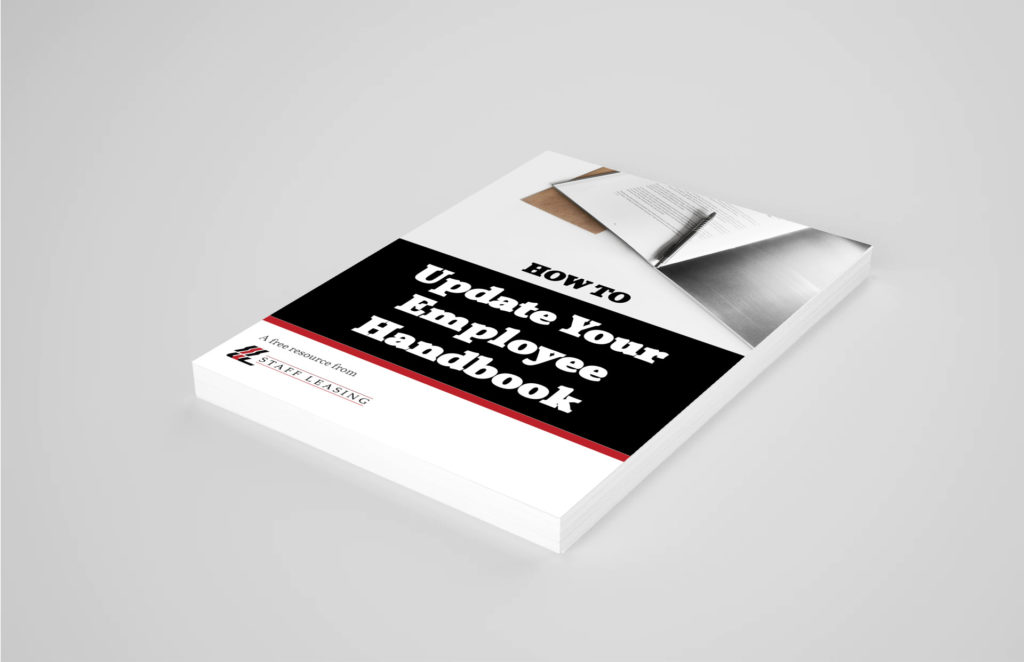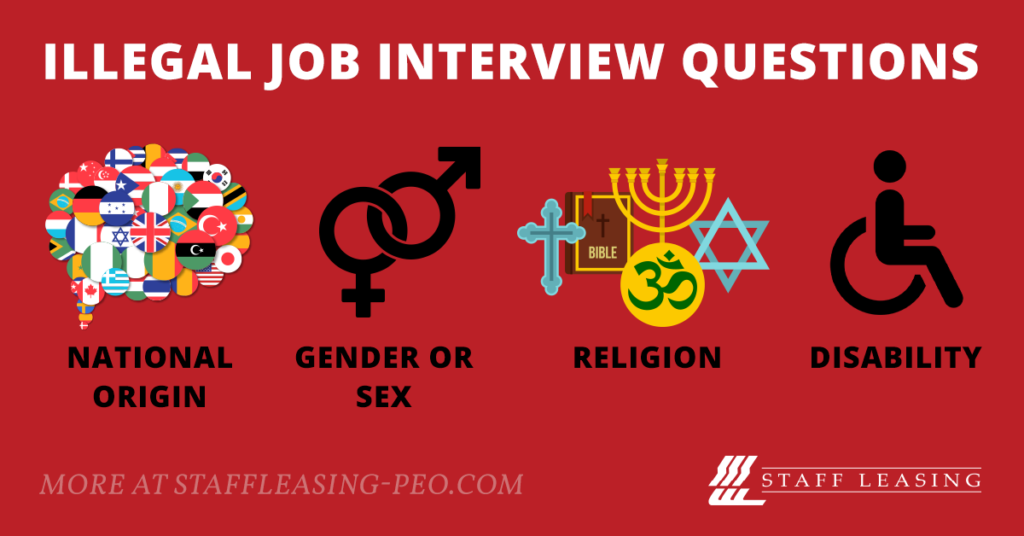When running a business, there are many different laws and regulations you must follow as the employer. If you aren’t making sure to follow every law, your business could be at risk. HR compliance is easy to overlook, especially if you’re a busy business owner and don’t have the right expertise on your team. Here are some situations that could possibly put your business at risk and how to avoid them.
An outdated employee handbook
Every business, no matter how small, should have an up-to-date employee handbook. If you don’t put the most current dos and don’ts in writing, you’re asking for trouble. In addition, laws change, which may significantly alter the applicability of your policies.
Even a few pages outlining acceptable and expected behavior provides employees with tangible guidelines. The employee handbook should be updated as often as necessary and all employees should sign an acknowledgment form stating that they received the publication and will abide by its policies. This sets an expectation for you and for your employees.
Include information such as your company’s:
- nondiscrimination policy
- communications policy
- code of conduct
- benefits and compensation
- employment and termination guidelines

Get our guide to updating your employee handbook by clicking here
Failing to document performance issues
Written policies and standard operating procedures are the boundaries that govern employee conduct. It can be tough to manage difficult employees. When a violation occurs, it must be accurately and thoroughly documented. Although it may seem time-consuming to jot down in a file that someone was reprimanded for repeated tardiness, it’s important evidence that can support a decision to terminate that individual for unsatisfactory job performance, for example.
In addition, when a company is consistent in its application of performance issues, it’s better able to address potential legal issues that may arise in the future, such as a discrimination claim. You want to be sure every employee is treated fairly and equally.
Incomplete employee files
For compliance reasons, it’s very important to keep records of all the personnel documents attached to your employees’ work histories.
It’s also a good practice to make sure the proper documents are kept in the employee performance file. Some documents that contain personal information, such as disability forms and leave, should be kept in a separate folder since these are personal and aren’t needed to manage an employee’s performance. It is important that employees can trust you with their personal information.
It’s helpful to have a binder for all valid I-9s, which verify work eligibility in the United States and employee identity. They should be easy to access and updated when necessary. Fines can add up quickly if you can’t produce current and accurate documents upon request by Immigration and Customs Enforcement (ICE).
And because of the Health Insurance Portability and Accountability Act (HIPAA), it may be smart to store your employees’ health and welfare-related benefits information separately as well.
Keeping all records in an employee’s personnel file. Some laws specifically call for certain records to be kept in a separate confidential file. It’s also a best practice to keep certain documents separate from personnel files. This includes:
- Any information reflecting an employee’s membership in a protected group, such as their voluntary self-identification of race, ethnicity, gender, veteran’s status, or as an individual with a disability.
- Any document relating to an employee’s medical condition or health or history (and in some cases a family member’s medical information), including any doctor’s notes and drug tests, medical certification forms, and leave of absence requests based on an employee’s disability or injury, or benefits information that contains protected health information.
- I-9 forms and supporting identity and work authorization documents. It’s a best practice to store all I-9 forms together in one file, since they must be produced promptly following an official request.
- Records concerning workplace investigations (interview notes, written statements from all relevant parties, final investigation report, etc.) should be kept in a separate workplace investigation file.
- Other protected information, including child support or wage garnishment information, background and credit reports, litigation documents and grievances .
Asking for a specific document for the I-9 Form. All employers must complete and retain a Form I-9 for each employee at the time of hire to verify their identity and work authorization. The employee has the right to pick which document(s) to present, provided they are on the I-9’s List of Acceptable Documents. The employer can’t decide which specific documents the employee must show to verify employment eligibility.
Inaccurate job descriptions
Hurried hiring and promotion processes can lead to a host of problems for employers. Before you even consider hiring someone, take time to understand exactly why you’re hiring and what skills are necessary in the ideal candidate.You don’t want to hire someone in a hurry and then realize they aren’t a good fit for the company.
A few hours spent crafting a solid job description can prevent countless hours of future hassle. For example, when you’re recruiting a candidate, they may have impressive skills, but that skill set must also address your needs. A detailed job description helps you stay focused on exactly what you need in a potential candidate. Make sure to only entertain candidates with the right skill set.
Likewise, job descriptions are important references when an employee requests a modification to their job for medical reasons. Let’s say one of your warehouse supervisors is involved in an accident and breaks his arm while on his family vacation. He recovers quickly and comes back to work, but he is not physically able to do the heavy lifting he normally does. Can he continue in the same role? If so, does he need special help to help him carry out his work duties? If he can’t stay in the role, what are all your options? To determine that, you’ll need to engage in an interactive process. The first step in this process involves reviewing the essential and marginal functions of the job – which should be listed clearly in his job description.
Understanding exactly what is expected of the employee, including what job tasks are essential and which are not, can simplify an otherwise tough process when dealing with the Americans with Disabilities Act (ADA). It can also help identify what a company is able to provide employees.
Inadequate HR policies
Don’t overlook the importance of an internal HR audit. Set aside time each year to make sure your HR policies are current and complete.
For example, many businesses don’t include a vacation payout policy in their handbooks — or a complaint process or disaster and workplace violence plan for the organization. This creates situations where employees may quit with unused vacation time. If they don’t know ahead of time how that time will be treated, they will likely complain. It is wise to prepare everyone for these types of situations.
Sometimes the unthinkable happens and disaster strikes. By providing clear guidelines on how to respond prior to an incident, you can help minimize the impact it might have on your employees and your business. It is best to keep everyone prepared.
A well-thought-out plan will help protect you, your employees and your customers.
Consider these questions when developing your plan:
- Who will be in charge?
- What are your pre-established responses?
- Do you have an off-site meeting place for people to gather?
- How will you communicate with your employees during a disaster?
- Will you shelter in place or evacuate in certain situations?
Having policies and plans for handling unexpected events (like COVID-19) reduces the stress, liabilities, and costs to your business.
Bad termination practices

It is possible to have bad termination practices when letting an employee go, especially if you don’t have a plan in place for handling terminations properly. Here are some common mistakes.
Withholding final pay until company property is returned: Federal law requires employees to receive their final pay by the next scheduled payday. Many states have shorter timeframes, such as at the time of termination. Employers must meet final pay deadlines, regardless of whether the employee has returned company property.
Failing to pay out unused vacation when required: Depending on your state, you may be required to include accrued, unused vacation and paid time off in the employee’s final pay. States generally handle unused vacation in one of three ways:
- Expressly prohibit use-it-or-lose-it policies. These states require carryover from year to year and payout at separation
- Permit use-it-or-lose-it policies but only if the employer has a written policy that explicitly states it will not carry over accrued, unused vacation to the following year and won’t pay employees for accrued, unused time at separation; or
- Don’t require employers to carry over accrued, unused vacation to the following year or pay employees for unused time at separation unless they have a policy that says otherwise.
Know which rule applies to you and ensure your final pay practices align with it. You can find New York Sate’s accrued, unused vacation time policies here.
Asking the wrong things when hiring
Seeking an applicant’s salary history. More than a dozen states and several cities, including New York, have enacted laws that generally prohibit employers from asking applicants about their pay history. These laws are intended to prevent widening the wage gap since discriminatory pay practices of a previous employer could result in lower wages in a new job. This is an ethical issue. Make sure you understand what, if any, restrictions apply to you.
Asking off-limit questions. During interviews, employers should avoid not only questions that are expressly prohibited by law but also those that may directly or indirectly reveal an applicant is a member of a protected group. For example, asking an applicant what year they graduated high school could be used to estimate their age. The fact that you know this information could be used to challenge your hiring decisions. Interviewers often ask these types of questions not because they intend to discriminate against candidates, but because they’re engaging in small talk to get an interview going. Still, there are other times when these questions may represent biases that the interviewer may not know that they even have, which might impact their hiring decisions. Because of this easy to make mistake, it may be best to keep the small talk at a minimum while early in the hiring process.

Asking about criminal history too soon. In several jurisdictions, employers are prohibited from asking about criminal history on applications. In many cases, these laws require employers to wait until later in the pre-employment process, such as after making a conditional job offer, before asking about criminal history. While there is no federal law specifically prohibiting employers from asking applicants if they’ve ever been convicted of a crime, the Equal Employment Opportunity Commission (EEOC) recommends employers avoid asking for this information on an application. If employers do ask about convictions later in the selection process, the inquiries should be job-related and consistent with business necessity.
Failing to comply with payroll rules
Failing to pay employees for rest breaks, training, and travel. Under the Fair Labor Standards Act (FLSA) and many state laws, employers must pay employees not only for time actually spent working, but also for certain nonproductive time, such as time spent in training, on rest breaks, or traveling. Make sure you understand and comply with federal and state rules on compensable time.
Classifying employees as exempt from overtime based on job title. An employee’s job title doesn’t determine whether they may be classified as exempt from overtime. And just because an employee receives a salary doesn’t mean they aren’t entitled to overtime.
Under the FLSA, to be classified as exempt from overtime, an employee must generally:
- Meet the minimum salary requirement
- Receive their full salary in any week they perform work, regardless of the quality or quantity of the work
- Meet certain primary duties criteria.
Some states have their own tests for overtime exemption. Before classifying an employee as exempt from overtime, apply all applicable federal and state tests.
Prohibiting employees from discussing their pay. Section 7 of the National Labor Relations Act (NLRA) gives employees the right to act together, with or without a union, to improve wages and working conditions. Most employers are covered by the NLRA, regardless of whether their employees are unionized. The National Labor Relations Board (NLRB), which enforces the NLRA, and many courts have found that rules that prohibit employees from discussing their pay (or other terms and conditions of employment) violate the NLRA. Some states also have enacted laws protecting employees who discuss their pay with co-workers.
Failing to pay ‘unauthorized’ overtime. If a non-exempt employee has worked overtime, they must be paid an overtime premium, regardless of whether the overtime was pre-authorized. A policy that no overtime work is permitted unless authorized in advance doesn’t relieve the employer of this requirement. Employers may subject the employee to disciplinary measures for working unauthorized overtime, but in no case may the employer withhold overtime pay.
Averaging hours over two workweeks when determining whether overtime is due. Under the FLSA, non-exempt employees must receive 1.5 times their regular rate of pay for all hours worked over 40 in a workweek (some states require overtime in additional circumstances and at a different rate). The FLSA does not allow employers to average an employee’s work hours over two or more workweeks. Therefore, if an employee works 50 hours in one workweek, the employee is entitled to overtime for that workweek even if the employee works 30 or fewer hours in the following/preceding workweek. Incorrectly calculating an employee’s regular rate of pay. Under the FLSA, an employee’s regular rate includes not only their hourly rate but also the value of nondiscretionary bonuses, shift differentials, and certain other forms of compensation. Failing to include these other types of compensation can result in inaccurate overtime pay calculations.
Not following paid leave laws
Assuming leave laws don’t apply to small employers. States and local jurisdictions are increasingly requiring employers of all sizes to provide leave to employees, including paid sick leave and paid family and medical leave. Make sure you understand which leave laws apply to you.
Requiring a doctor’s note for every sick day. Most leave laws allow employers to ask employees for reasonable documentation of the need for leave. However, certain laws do have restrictions. For example, some paid sick leave laws keep employers from requesting documentation unless the employee has taken sick leave for more than three days in a row. Even in the absence of a restriction, consider if any documentation would be reasonable, and apply your policy consistently.
Counting job-protected leave against an employee. Many federal, state, and local laws give employees the right to job-protected leave and prohibit retaliation against employees who exercise their right to take leave. If an employee takes protected leave under one of these laws, the employer may not count this time against the employee when assessing their attendance. Review your attendance and performance practices to ensure they aren’t violating these laws.
Not embracing HR’s role as a true business partner
Effective HR experts can help you manage your risk and stay compliant while improving the quality of your workplace. With a great HR team, you can stay informed about regulatory changes and have the training, tools, and resources necessary to keep you in compliance. Reduce the risk of being an employer with the right guidance. Don’t overlook HR as a true business partner in growing your organization.
There are many seemingly small decisions that could put your business at risk. Make sure that you’re complying with all the newest laws and regulations in order to protect yourself, your employees, and your business. Keeping up with this can be pretty overwhelming. If you need assistance, contact us today.


